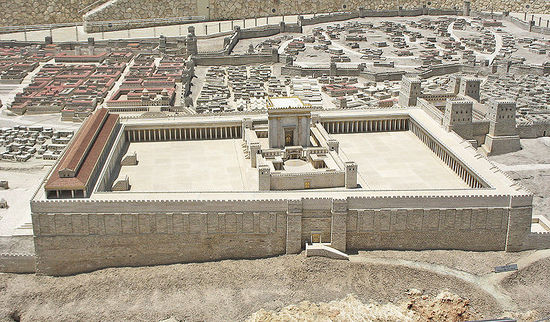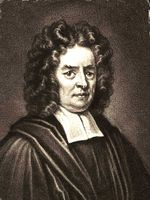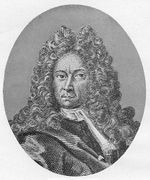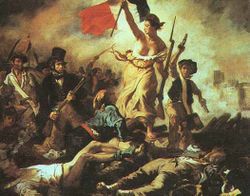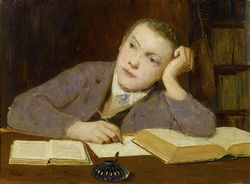Difference between revisions of "Category:Second Temple Studies--1700s"
| Line 26: | Line 26: | ||
* [[La Betulia liberata (The Liberation of Bethulia / 1734 Metastasio), libretto]] | * [[La Betulia liberata (The Liberation of Bethulia / 1734 Metastasio), libretto]] | ||
* [[The Genuine Works of Flavius Josephus (1737 Whiston), book]] | * [[The Genuine Works of Flavius Josephus (1737 Whiston), book]] | ||
* [[La Betulia liberata (The Liberation of Bethulia / 1771 Mozart / @1734 Metastasio), oratorio]] | |||
* [[Den Jødiske historie (1777-1782 Bastholm), book]] | * [[Den Jødiske historie (1777-1782 Bastholm), book]] | ||
* [[La clemenza di Tito (The Clemency of Titus / 1791 Mozart / Mazzolà, @1734 Metastasio), opera (music & libretto), Prague premiere (cast)]] | * [[La clemenza di Tito (The Clemency of Titus / 1791 Mozart / Mazzolà, @1734 Metastasio), opera (music & libretto), Prague premiere (cast)]] | ||
Revision as of 02:01, 13 August 2018
|
Highlights (1700s)
History of research (1700s) The rise of critical scholarship in the 18th century produced a first, important turn. As a result of the new critical interest in history and philology, Christian theology began to admit that, to a certain extent, post-biblical Judaism served to prepare for the coming of Jesus. At the beginning of the 18th century, Humphrey Prideaux (1648-1724), clergymen and scholar, dean of Norwich, reinvented "Second Temple Judaism" as the “intertestamental” period. His work (The Old and New Testament Connected in the History of the Jews, and Neighbouring Nations; from the Declension of the Kingdoms of Israel and Judah to the Time of Christ, 2 vols., London 1716-1718) dominated the field for more than a century with numerous editions and translations in French, Italian, and Germany. It also prompted interest in the literature of the period. The Codes Pseudepigraphus Veteris Testamenti (Hamburg 1713-33) by Johann Albert Fabricius (1668-1736) was the first published collection of Old Testament Pseudepigrapha. The age "from Malachi to Jesus" emerged in Christian scholarship as a distinct historical period--it was the necessary "connection" between the Old and the New Testament, the time in which God's providence acted to create the right conditions for the spreading of the Christian message. @2014 Gabriele Boccaccini, University of Michigan
English -- French -- German -- Italian -- Spanish -/- Afrikaans -- Albanian -- Armenian -- Bulgarian -- Catalan -- Chinese -- Croatian -- Czech -- Danish -- Dutch -- Greek -- Hebrew -- Hungarian -- Japanese -- Korean -- :Latin -- Norwegian -- Polish -- Portuguese -- Romanian -- Russian -- Swedish -- Yiddish |
|
Pages in category "Second Temple Studies--1700s"
The following 200 pages are in this category, out of 254 total.
(previous page) (next page)1
- La Giuditta (1701 Lotti), oratorio
- Die alten jüdischen Heiligthümer, Gottesdienste und Gewohnheiten (The Ancient Jewish Shrines, Worship and Habits / 1701 Lund / Muhle), book (revised ed.)
- Judae Machabei gloriosa in Deum fiducia (1702 Adolph), play
- The Works of Flavius Josephus (1702 L'Estrange), book
- La madre de' Maccabei (The Mother of the Maccabean Martyrs / 1704 Ariosti / 1685 Gigli), oratorio
- Mater Machabaeorum (1704 Arresti), oratorio
- Histoire critique des dogmes et des cultes (A Critical History of Dogmas and Cults / 1704 Jurieu), book
- Alle de werken van Flavius Josephus = The Works of Josephus, rev. ed. (1704 @1676 Lodge / Sewel), book (Dutch ed.)
- La madre de' Maccabei (The Mother of the Maccabean Martyrs / 1705 Aldrovandini / 1685 Gigli), oratorio
- La Giuditta (Judith / 1706 Buonaccorsi), oratorio
- Yosifon Josippon, sive, Josephi ben-Gorionis Historiae Judaicae (Josippon / 1706 Gagnier), book
- La regina Ester (1706 Saratelli), oratorio
- יוסיפון בן גוריון id est: Josephus Gorionides, sive Josephus Hebraicus (Josippon / 1707 Breithaupt), book
- La decollazione del S. Precursore Giovanni Battista (1708 Arresti / Grappelli), oratorio
- Esther (1708 Jacquet de La Guerre), oratorio
- Judith (1708 Jacquet de La Guerre), oratorio
- Il martirio de' Maccabei (1709 Badia / Stampiglia), oratorio
- La decollazione di San Giovanni Battista (1709 Bononcini), oratorio
- Le livre de Philon De la vie contemplative (Philo, De vita contemplativa / 1709 Guerin), book
- Agrippina (1709 Haendel / Grimani), opera (music & libretto), Venice premiere (cast)
- Hérode (1709 Nadal), play
- Daniele (Daniel / 1709 Rotondi / Grappelli), oratorio
- La Giuditta (1710 Badia / Stampiglia), oratorio
- De Alexandra Judaeorum regina (1711 Müller), dissertation
- L'umiltà coronata in Esther (1712 Lotti / Pariati), oratorio
- (+) Flavii Josephi Judiske historia (1713-52 Arnauld d'Andilly / Gyllenstierna), book (Swedish ed.)
- Der schönen Esther Lebensgeschichte (1713 Lehms), novel
- Tito e Berenice (Titus and Berenice / 1714 Caldara / Capece), opera (music & libretto), Rome premiere (cast)
- La donna forte nella madre dei sette Maccabei (1714 Fux / Pariati), oratorio
- La fede sacrilega nella morte del Precursore S. Giovanni Battista (Sacrilegious Faith in the Death of the Precursor, St. John the Baptist / 1714 Fux / Pariati), oratorio
- Matteh Dan; or, Kuzari Heleq Sheni (1714 Nieto), book
- Rabban Gamaliel senior (1715 Celsius), book
- La decollazione di San Giovanni Battista (1715 Grimani), oratorio
- De onolatreiai (1716 Hase), book
- Juditha triumphans (1716 Vivaldi / Cassetti), oratorio
- La Giuditta (1717 Arresti), oratorio
- Herodes (Herod the Great / 1718 Schürmann / Müller), opera (music & libretto), Brunswick premiere
- Miscellaneous Discourses Relating to the Traditions and Usages of the Scribes and Pharisees in Our Saviour Jesus Christ's Time (1718 Wotton), book
- La regina Ester (1719 Berti / Aceti), oratorio
- (++) Histoire de l’Ancient et du Nouveau Testament et des Juifs (1719 Calmet), book
- La madre de’ Maccabei (1719 Massarotti), oratorio
- Disquisitio ex historia ecclesiastica et philosophica (1720 Colberg), book
- Flavii Iosephi quae reperi potuerunt opera omnia, graece et latine (1720 Hudson, Hall), book
- Tobia (1720 Porsile / Zeno), oratorio
- L'incoronazione di Ester (1720 Ristori / Ginori), oratorio
- Les Machabées (1721 La Motte), play
- Reflexions sur l'histoire des juifs (1721 Plantier), book
- La decollazione di San Giovanni Battista (1721 Predieri), oratorio
- Gli eccessi della gelosia (1722 Albinoni), opera
- Esther; ovvero, L'umiltà coronata (1722 Clari), oratorio
- An Epistolary Discourse, Concerning the Books of Ezra, Genuine and Spurious (1722 Lee), book
- Antiochus; ou, Les Machabées (1722 Nadal), play
- L'Ester (1723 Bellinzani / Ercolani), oratorio
- Ester (1723 Caldara / Fozio), oratorio
- (+) Mariamne (1723 Fenton), play
- Il ritorno di Tobia (1723 Lotti / Melani), oratorio
- L'Ester (1723 Orlandini / Melani), oratorio
- Jonathas le Machabée (1723 Père de la Sante), play
- Il trionfo di Giuditta (1723 Porsile / Maddali), oratorio
- La Mariane (1724 Albinoni/Porta), opera
- L'Agrippa tetrarca di Gerusalemme (1724 Buini), opera
- Ester (1724 Sarro), oratorio
- Mariamne (1724 Voltaire), play
- La storia dell'Antico e Nuovo Testamento = Histoire de l’Ancient et du Nouveau Testament et des Juifs (1725 @1719 Calmet / Canturani), book (Italian ed.)
- Mariamne (1725 Nadal), play
- Berenice (1725 Orlandini / Pasqualigo), opera (music & libretto), Venice premiere (cast)
- Histoire des juifs et des peuples voisins = The Old and New Testament Connected in the History of the Jews, and Neighbouring Nations (1722 @1716-1718 Prideaux / Brutel), book (French ed.)
- La Giuditta (1726 Almeida), oratorio
- Flavii Josephi Quae reperiri potuerunt, opera omnia, graece et latine (1726 Havercamp), book
- Heiligdommen, godsdiensten, en gewoontens der oude Jooden = Die alten jüdischen Heiligthümer, Gottesdienste und Gewohnheiten (The Ancient Jewish Shrines, Worship and Habits / 1726 @1701 Lund, Muhle / Long, Outhof), book (Dutch ed.)
- Spartaco (Spartacus / 1726 Porsile / Pasquini), opera (music & libretto)
- Diatribe de synagoga magna (1726 Rau), book
- Il Batista (John the Baptist / 1727 Caldara / Zeno), oratorio (music & libretto), Vienna premiere (cast)
- Tobia il giovine (1727 Galuppi / Giupponi), oratorio
- Matatia in Modin (1727 Redi), oratorio
- A Collection of Authentick Records Belonging to the Old and New Testament (1727-28 Whiston), book
- Histoire du peuple de Dieu (1728-1757 Burruyer), book
- Daniello (Daniel / 1731 Caldara / @1731 Zeno), oratorio
- Il Titto / Titus l'empereur (Titus / 1731 Haendel), opera (music)
- Daniello (Daniel / 1731 Hasse / @1731 Zeno), oratorio
- Daniello (Daniel / 1731 Zeno), libretto
- L'osservanza della divina legge martirio de' Maccabei (1732 Conti / Lucchini), oratorio
- (+) Esther (1732 Haendel), oratorio
- La Gerusalemme convertita (1733 Caldara / Zeno), oratorio
- The Works of Flavius Josephus which Are Extant (1733 Court), book
- Judith (1733 Fesch / Huggins), oratorio
- L'Ester (1733 Manzoni Giusti), play
- Il ritorno di Tobia (1733 Reutter / Pasquini), oratorio
- A New History of the Holy Bible, from the Beginning of the World to the Establishment of Christianity (1733 Stackhouse), book
- La Gerusalemme convertita (1733 Zeno), libretto
- La clemenza di Tito (The Clemency of Titus / 1734 Caldara / @1734 Metastasio), opera (music), Vienna premiere
- Il cantico de' tre fanciulli (1734 Hasse / Pallavicini), oratorio
- (++) La Betulia liberata (The Liberation of Bethulia / 1734 Metastasio), libretto
- La clemenza di Tito (The Clemency of Titus / 1734 Metastasio), libretto (opera)
- La Valiente Judith (The Brave Judith / 1734 Picanyol), oratorio
- La Betulia liberata (The Liberation of Bethulia / 1734 Reutter / @1734 Metastasio), oratorio (music), Vienna premiere
- La clemenza di Tito (The Clemency of Titus / 1735 Leo / @1734 Metastasio), opera (music), Venice premiere (cast)
- Des Fürtrefflichen Christlichen Geschicht-Schreibers Egisippi Fünf Bücher Vom Jüdischen Krieg und endlicher Zerstöhrung der Stadt Jerusalem (Hegesippus / 1735 Ott), book
- La Giuditta (Judith / 1735 Wassmuth), oratorio
- La clemenza di Tito (The Clemency of Titus / 1736 Ciocchetti / @1734 Metastasio), opera (music), Genoa premiere (cast)
- Des Fürtrefflichen Jüdischen Geschicht-Schreibers Flavii Josephi Sämmtliche Wercke (Josephus' Complete Works / 1736 Cotta), book
- Des Vortrefflichen Jüdischen Geschicht-Schreibers Flavii Josephi Sämtliche Wercke (Josephus' Complete Works / 1736 Ott), book
- La clemenza di Tito (The Clemency of Titus / 1736 Peli / @1734 Metastasio), opera (music), Munich premiere
- La Betulia liberata (The Liberation of Bethulia / 1737 Leoni / @1734 Metastasio), oratorio (music), Genoa premiere
- La clemenza di Tito (The Clemency of Titus / 1737 Marchi / @1734 Metastasio), opera (music), Milan premiere (cast)
- La madre de’ Maccabei (1737 Porsile / Manzoni), oratorio
- La clemenza di Tito / The Clemency of Titus (1737 Veracini / Cori, @1734 Metastasio), opera (music), London premiere (cast)
- (++) The Genuine Works of Flavius Josephus (1737 Whiston), book
- La clemenza di Tito (The Clemency of Titus / 1738 Arena / @1734 Metastasio), opera (music), Turin premiere (cast)
- La Betulia liberata (The Liberation of Bethulia / 1738 Bernasconi / @1734 Metastasio), oratorio (music), Vienna premiere
- Die Alten Jüdischen Heiligthümer, Gottesdienste und Gewohnheiten (The Ancient Jewish Shrines, Worship and Habits / 1738 Lund, Muhle / Wolf), book (revised ed.)
- Ester (1740 Pampani / Cordara), oratorio
- Herod the Great (1740 Peck), poetry
- Sacri Iudaeorum ritus antiqui (1740 Reckenberger), book
- La Triunfante Judith (Judith Triumphant / 1742 Figuera), oratorio
- Philonos tou Ioudaiou ta heuriskomena hapanta / Philonis Judæi opera quæ reperiri potuerunt omnia (1742 Mangey), book
- La Betulia liberata (The Liberation of Bethulia / 1743 Jommelli / @1734 Metastasio), oratorio (music), Venice premiere
- La Betulia liberata (The Liberation of Bethulia / 1743 Redi / @1734 Metastasio), oratorio (music), Florence premiere
- Il profeta Daniele (Daniel the Prophet / 1744 Bigaglia / Giupponi), oratorio
- Belshazzar (1745 / @1745 Haendel), London production, world premiere (oratorio)
- Belshazzar (1745 Haendel / Jennens), oratorio
- La madre de' Maccabei (1745 Mazzoni / Belletti), oratorio
- La Betulia liberata (The Liberation of Bethulia / 1746 Angelini / @1734 Metastasio), oratorio (music), Perugia premiere
- La Betulia liberata (The Liberation of Bethulia / 1746 Cafaro / @1734 Metastasio), oratorio (music), Naples premiere
- Judith (1746 Galuppi), oratorio
- La clemenza di Tito (The Clemency of Titus / 1746 Wagenseil / @1734 Metastasio), opera (music), Vienna premiere
- La Betulia liberata (The Liberation of Bethulia / 1747 Ciampi / @1734 Metastasio), oratorio (music), Venice premiere
- La clemenza di Tito (The Clemency of Titus / 1747 Corselli, Corradini, Meli / @1734 Metastasio), opera (music), Madrid premiere
- (++) Judas Maccabeus (1747 Haendel / Morell), oratorio
- La clemenza di Tito (The Clemency of Titus / 1747 Manna / @1734 Metastasio), opera (music), Messina premiere
- La clemenza di Tito (The Clemency of Titus / 1748 Grua / @1734 Metastasio), opera (music), Mannheim premiere
- Alexander Balus (1748 Haendel / Morell), oratorio
- La clemenza di Tito (The Clemency of Titus / 1748 Pampani / @1734 Metastasio), opera (music), Venice premiere (cast)
- Susanna (1749 Haendel), oratorio
- Tobia (1749 Orlandini / Zeno), oratorio
- La Gerusalemme convertita (1751 Galuppi / Zeno), oratorio
- La clemenza di Tito (The Clemency of Titus / 1752 Gluck / @1734 Metastasio), opera (music), Naples premiere
- Historia del pueblo de Dios: desde su origen, hasta el nacimiento del messias (12 vols.; 1752-1753 @1728 Burruyer), book (Spanish ed.)
- Daniel (1752 Werner), oratorio
- La clemenza di Tito (The Clemency of Titus / 1753 Adolfati / @1734 Metastasio), opera (music), Genoa premiere
- Giuditta (Judith / 1753 Costanzi), oratorio
- La clemenza di Tito (The Clemency of Titus / 1753 Jommelli / @1734 Metastasio), opera (music), Stuttgart premiere (cast)
- La clemenza di Tito (The Clemency of Titus / 1753 Valentini / Palomba, @1734 Metastasio), opera (music), Bologna premiere (cast)
- Giovanni di Giscala (John of Giscala / 1754 Varano), play
- De Essaeis et Therapeutis (1755 Bielke), book
- Il sogno di Nabucco (1755 Jommelli), oratorio
- La Gerusalemme convertita (1755 Jommelli / Zeno), oratorio
- La clemenza di Tito (The Clemency of Titus / 1755 Mazzoni / @1734 Metastasio), opera (music), Lisbon premiere (cast)
- Betulia liberata (The Liberation of Bethulia / 1756 Aurisicchio / @1734 Metastasio), oratorio (music), Rome premiere
- La clemenza di Tito (The Clemency of Titus / 1757 Ciampi / @1734 Metastasio), opera (music), Venice premiere (cast)
- La clemenza di Tito (The Clemency of Titus / 1757 Cristiani / @1734 Metastasio), opera (music), Camerino premiere (cast)
- La clemenza di Tito (The Clemency of Titus / 1757 Holzbauer / Verazi, @1734 Metastasio), opera (music), Mannheim premiere
- Triumphus Judith (1757 Pampani), oratorio)
- La clemenza di Tito (The Clemency of Titus / 1760 Cocchi / @1734 Metastasio), opera (music), Bologna premiere
- La clemenza di Tito (The Clemency of Titus / 1760 Galuppi / @1734 Metastasio), opera (music), Turin premiere (cast)
- La Betulia liberata (The Liberation of Bethulia / 1760 Holzbauer / @1734 Metastasio), oratorio
- Spartacus (1760 Saurin), play
- La clemenza di Tito (The Clemency of Titus / 1760 Scarlatti / @1734 Metastasio), opera (music), Venice premiere (cast)
- Judith (1761 Arne / Bickerstaffe), oratorio
- An Enquiry into the Divine Missions of John the Baptist, and Jesus Christ (1761 Bell), book
- Antiochus der wütente Tyrann, und Vorbild des künftigen Antichrist (Antiochus the Raging Tyrant and Figure of the Future Antichrist / 1762 Werner), oratorio
- The Siege of Jerusalem by Titus Vespasian (1763 Latter), play
- La madre de' Maccabei (The Mother of the Maccabean Martyrs / 1763 Petrucci), oratorio
- La madre de' Maccabei (1764 Barbieri), libretto
- La madre de' Maccabei (1764 Guglielmi / Barbieri), oratorio
- Berenice (1764 Piccinni / @1725 Pasqualigo), opera (music), Naples premiere
- Il Tobia (1765 Alessandri), oratorio
- La madre de' Maccabei (1765 Anfossi / Barbieri), oratorio
- La madre de' Maccabei (1765 Garroni / Barbieri), oratorio
- Matatia (Matthatias / 1765 Nenci / Coltellini), oratorio
- Herodes und Mariamne (1765 Telemann), opera
- La clemenza di Tito (The Clemency of Titus / 1766 Platania / @1734 Metastasio), opera (music), Milan premiere
- La madre de' Maccabei (1767 Bergamini / Barbieri), oratorio
- Daniello (Daniel / 1767 Felici / @1731 Zeno), oratorio
- La Betulia liberata (The Liberation of Bethulia / 1767 Ricci / @1734 Metastasio), oratorio (music), Ascoli premiere
- Colección de varias historias (1767-1768 Santos Alonso), novel
- La clemenza di Tito (The Clemency of Titus / 1768 Bernasconi / @1734 Metastasio), opera (music), Munich premiere
- Il popolo di Giuda liberato dalla morte per intercessione della regina Ester (1768 Sacchini / G.N.C.), oratorio
- La Betulia liberata (The Liberation of Bethulia / 1768 Scolari / @1734 Metastasio), oratorio (music), Lisbon premiere
- La clemenza di Tito (The Clemency of Titus / 1769 Anfossi / @1734 Metastasio), opera (music), Rome premiere
- The Siege of Jerusalem (1769 Bowes Strathmore), play
- Considerations on the Life and Death of St. John the Baptist (1769 Horne), book
- La clemenza di Tito (The Clemency of Titus / 1769 Naumann / @1734 Metastasio), opera (music), Dresden premiere
- Berenice (1770 Platania / Durandi), opera (music & libretto), Turin premiere (cast)
- Machabaeorum mater (The Mother of the Maccabean Martyrs / 1770 Sacchini / Chiari), oratorio
- La Betulia liberata (The Liberation of Bethulia / 1771 Calegari / @1734 Metastasio), oratorio (music), Padua premiere
- (++) La Betulia liberata (The Liberation of Bethulia / 1771 Mozart / @1734 Metastasio), oratorio
- La Betulia liberata (The Liberation of Bethulia / 1771 Myslivecek / @ 1734 Metastasio), oratorio (music), Padua premiere
- La clemenza di Tito (The Clemency of Titus / 1771 Sarti / @1734 Metastasio), opera (music), Padua premiere
- Daniello (Daniel / 1772 Coccia / @1731 Zeno), oratorio
- La Betulia liberata (The Liberation of Bethulia / 1772 Gassmann / @1734 Metastasio), oratorio (music), Vienna premiere
- La Liberatrice del Popolo Giudaico nella Persia; o sia, L’Esther (1773 Dittersdorf / Pintus), oratorio
- La clemenza di Tito (The Clemency of Titus / 1773 Myslivecek / @1734 Metastasio), opera (music), Venice premiere
- La Betulia liberata (The Liberation of Bethulia / 1774 Corri / @1734 Metastasio), oratorio (music), Edinburgh premiere
- Tres pueri hebraei in captivitate Babylonis (1774 Galuppi / Chiari), oratorio
- אסתר (Esther / 1774 Lidarti / Saraval), oratorio
- La Betulia liberata (The Liberation of Bethulia / 1774 Seydelmann / @1734 Metastasio), oratorio (music), Dresden premiere
- Jonah (1775 Felsted), oratorio
Media in category "Second Temple Studies--1700s"
The following 4 files are in this category, out of 4 total.
- 1713 Fabricius.jpg 326 × 500; 30 KB
- 1716 * Prideaux.jpg 435 × 750; 113 KB
- 1724 Collins (book).jpg 850 × 1,360; 127 KB
- 1795 * Eichhorn.jpg 307 × 400; 25 KB
